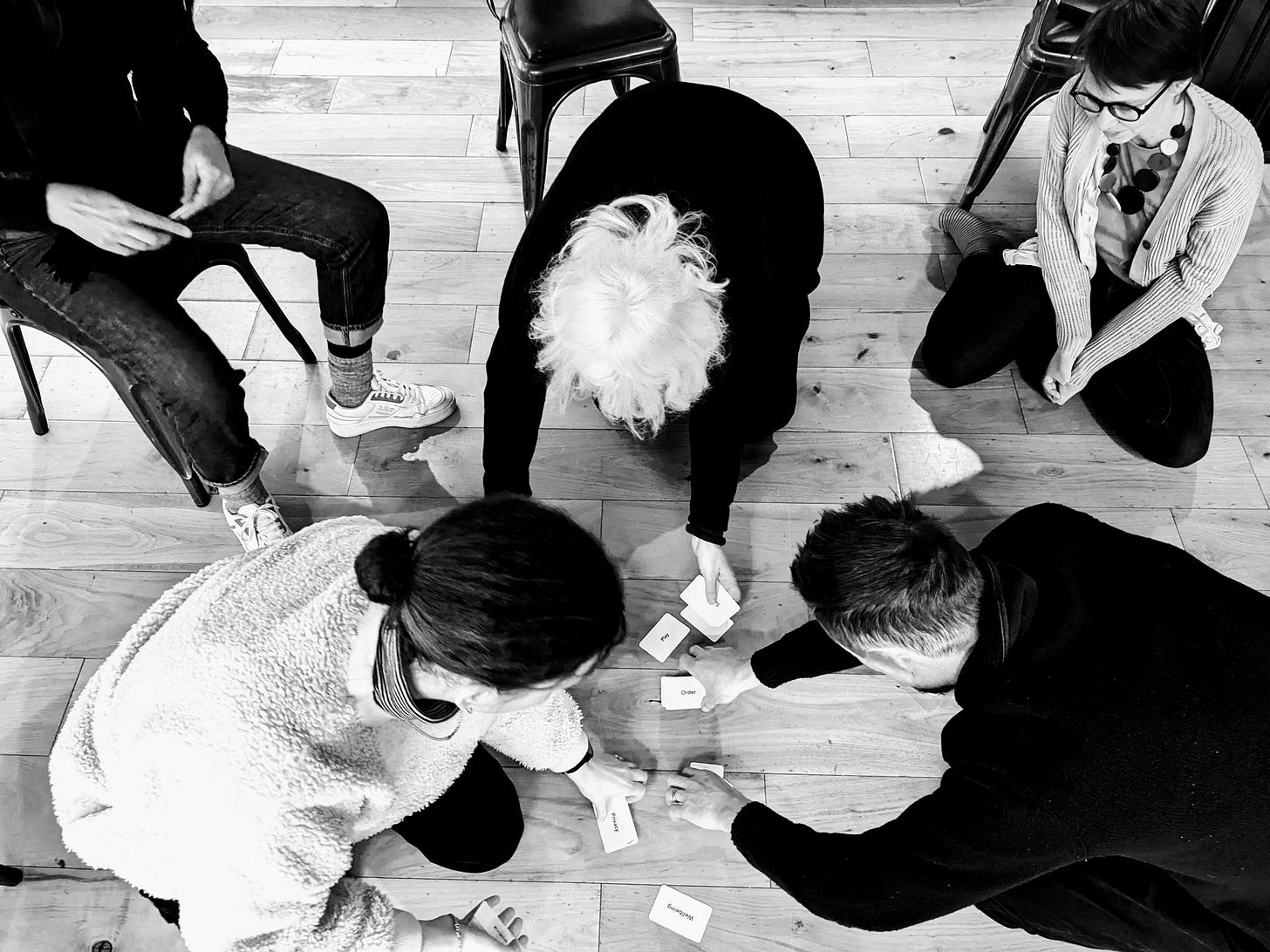Going The Distance: Lessons from The Decelerator's Pilot and the Road Ahead
Looking back at 2024, sharing our Pilot Impact Report and glimpses of what lies down the line for The Decelerator.

When we launched The Decelerator in autumn 2023, we were being led by a question: What if organisational endings weren’t feared but embraced as opportunities for growth, learning, and renewal? As the team and I compiled our Pilot Impact Report, it was crystal clear that our pilot has been a journey of discovery, filled with creativity, challenges, insights, and, above all, hope.
Let me tell you about Emma (not her real name), a CEO who reached out to us early in the pilot. Her organisation, a long-standing community service provider, was facing a dramatic funding shortfall as a result of both philanthropic and local authority funding cuts. When she first contacted The Decelerator, Emma described the experience as “navigating quicksand”—every day felt like a fight for survival. This was compounded by her team and board being on bad terms with each other—trust was plummeting and conflict was mounting.
Through The Decelerator Hotline, we offered Emma a space to pause, reflect, and consider all possible options. Together, we explored new approaches, including a wind-down plan that honoured the organisation’s legacy while supporting staff and beneficiaries. “For the first time, I could breathe,” she told us after our sessions. “It wasn’t just about the possible ending—it was about the possibility that we could do it with care and intention.” 6 months after the closure she shared that “closure wasn’t where me or any of my colleagues or trustees wanted to end up, but orderly closure ended up being the best of the options we had available to us.” She went on to say: “I’m now bringing that experience with me into my new leadership role, and I’m so proud of the services and assets we transferred to new homes that are flourishing in a new form”.
Emma’s story is just one of many. Over the pilot year, we supported 123 organisations through our confidential Hotline and developed 20 tools, including resources for leadership transitions, mergers, and planned closures. We’ve seen a growing willingness to have these conversations earlier—before crises escalate and catastrophes become evermore likely. We’ve connected with more than 1,500 people through events, gathered freelancers to share best practices, and built partnerships that ripple with impact beyond our direct involvement.
The pilot taught us that endings aren’t just inevitable—they’re essential moments of transformation. Yet, they remain stigmatised. Leaders often see them as failures, and marginalised groups face disproportionate burdens when closures or transitions occur. Through our work, we’re starting to see the possibility of a new narrative, showing that endings can be moments of purpose and impact, not despair and failure.
Looking ahead, we’re entering a five-year chapter with ambitious goals: advocating for systemic change, championing practitioners doing this work in different ways and places, and building evidence that better endings lead to stronger, more resilient organisations, sectors and places. But we’re also mindful of our own eventual ending. The Decelerator is designed to be time-limited, ensuring we inspire others to take up this work. Therefore working in partnership, inspiring others to take up deceleration work and shifting focus, policy and money towards better endings is crucial.
As the team reflected in our gathering in December, another thing was clear: this isn’t just about endings—it’s about beginnings too. It’s about the start of a new way of thinking in civil society, where compassion and courage replace fear and avoidance. Emma’s story, and the stories of so many like her, remind us why this work matters. Together, we’re not just stewarding endings—we’re part of building a legacy of hope, renewal, and impact, sometimes (but not always) from very difficult starting points.
You can read more about what we’ve delivered, the impact it’s had and our 5 year plan in our report here. We’d love to hear from you if any of it strikes a chord, unsettles you or inspires you.
Onwards!
Things to look out for and get involved with in the months ahead:
Stewarding Loss Community of Practice session: A one-off event organised by Camille Acey at Stewarding Loss where we’ll reflect on our pilot and what we’ve learnt, followed by a wide-ranging discussion with people interested in endings and renewal around the world. More info and sign up here.
Scottish Support Services Learning Series: January - March 2025. A dedicated skill share series for people and groups who work on the frontline of supporting civil society groups and organisations across Scotland. The Decelerator is co-hosting this event with SCVO and Community Enterprise. More info and sign up here.
Deceleration Hours: An informal regular networking session for anyone and everyone involved in UK civil society efforts to attend to better endings. More info and sign up here.
Funder Learning Series: We will be holding 3 dedicated learning events for funders over the course of 2025 specifically for funders who are supporting The Decelerator’s work. If you are a funder and interested in joining this group, we’d love to hear from you.
We are continuously striving to make ensure our offerings are accessible to everyone who needs them. If you have any feedback on this article and ideas on how to make it easier to read, access or understand, we’d welcome your suggestions via hello@decelerator.org or a voice note to 07930 547164.





So thankful for your work and support offered in this space!!
So glad to see you on Substack. Thank you for your truly innovative work which I suspect will be much in demand in the coming years. Caroline